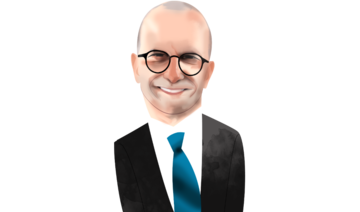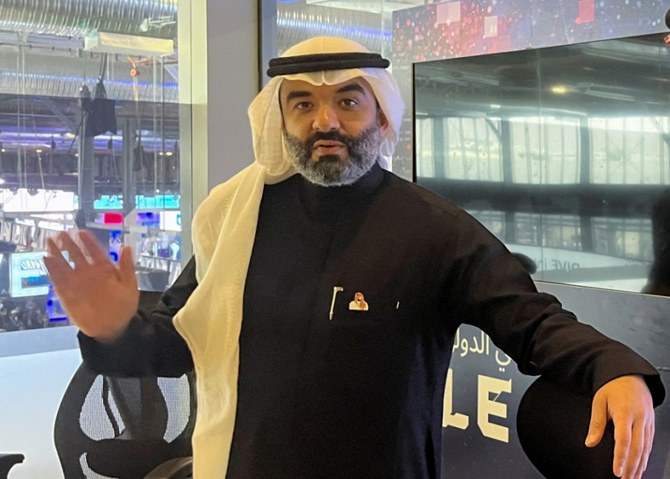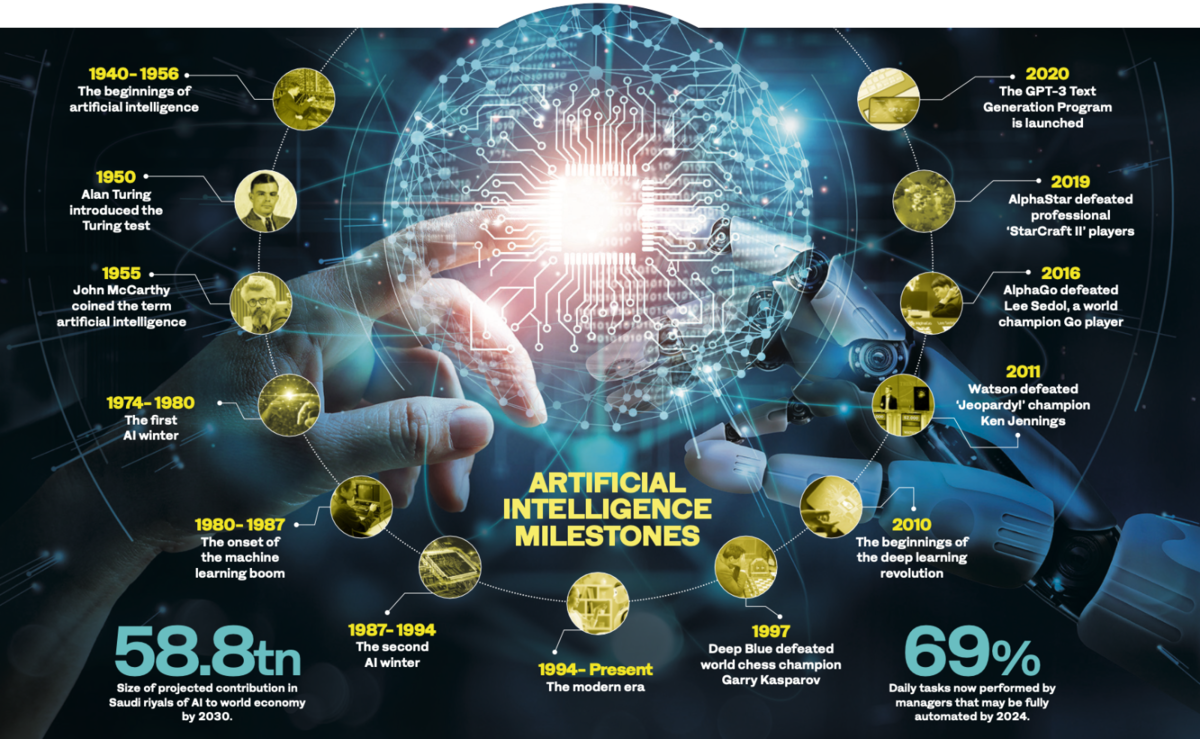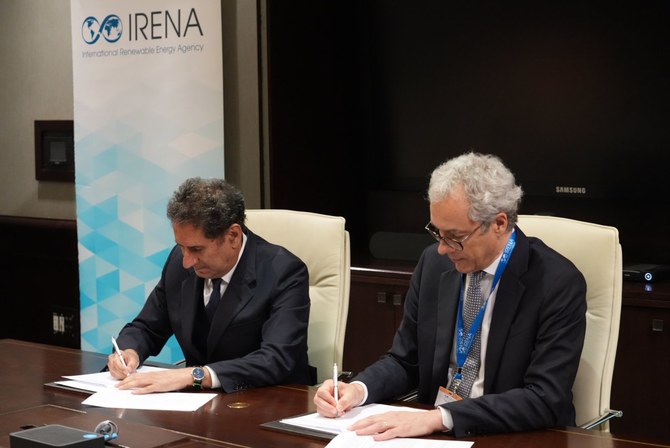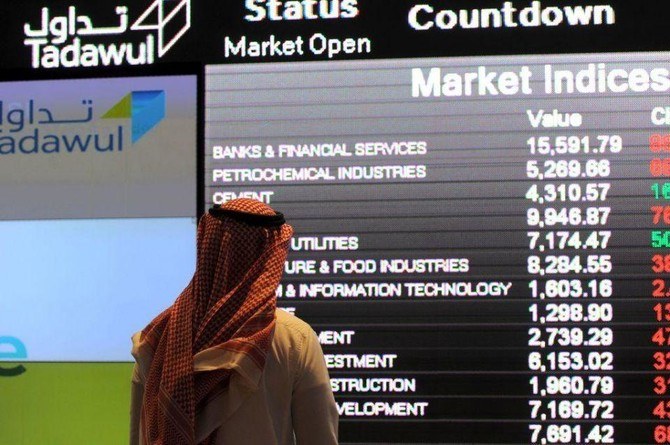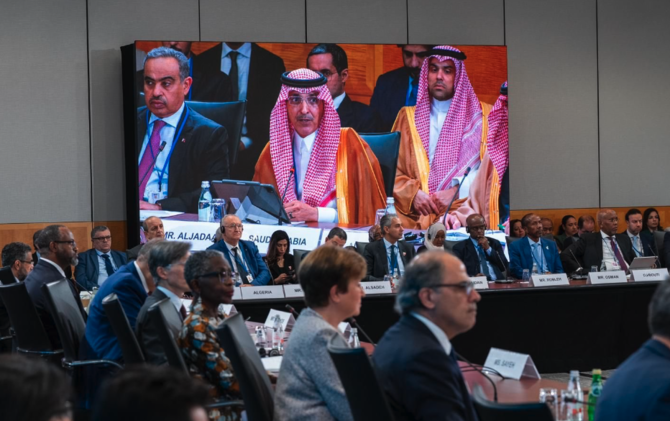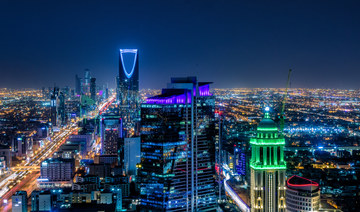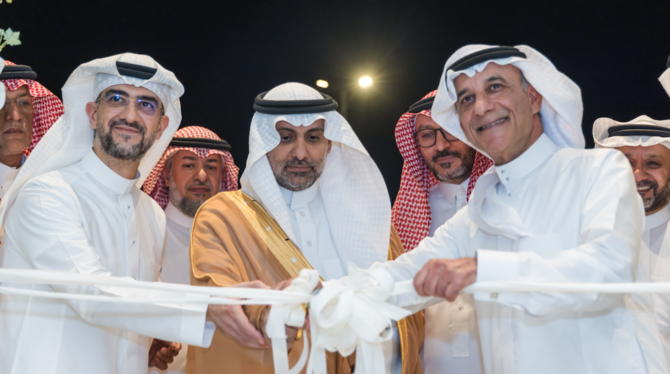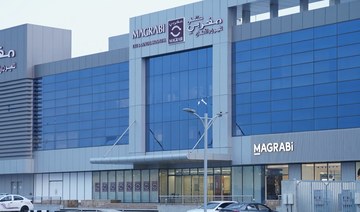One year on from his appointment as president of the King Abdullah Petroleum Studies and Research Center (KAPSARC), Adam Sieminski has a clear verdict: “It’s been great. Riyadh is actually kind of a fun place,” he said.
When not at the organization’s Zaha Hadid-designed campus in the Saudi capital, Sieminski, a career energy specialist across the financial, academic and public policy aspects of the industry, likes to take in Saudi Arabia’s historical and cultural archaeology.
“The hospitality that my wife Laurie and I have been shown in the Kingdom is unequaled anywhere in the world that we have traveled,” he said, regretting that his responsibilities at KAPSARC have not allowed him to spend more time exploring the country.
It has been a dramatic year even by the high-octane standards of the global energy industry. The resurgence of US oil and dramatic policy shifts by the US administration, the emergence of the OPEC+ alliance, the continuing “dash for gas” and the apparently unstoppable growth of electric and renewable energy — events such as these have kept energy experts busy analyzing, evaluating and forecasting.
It is KAPSARC’s job to make sense of all that and put forward appropriate policy recommendations to the Kingdom’s decision-makers, presenting them with a “range of options” for a policy call. The think tank was founded by the Council of Ministers as a non-profit global institution dedicated to independent research into all aspects of energy, and is an ideas laboratory for Saudi policymakers, and beyond.
The idea that, at least in the next 10 years or so, demand for oil is going to peak is really unlikely.
Adam Sieminski
Think tanks are relatively new in the Arabian Gulf, where policy has traditionally been decided by the intuition of a “strong man” monarch or president, but Sieminski believes that is changing in Saudi Arabia.
“It is a monarchy … but as part of Vision 2030 I think there is a recognition that they have to broaden out the base associated with thinking about these issues,” he said. All of KAPSARC’s deliberations are published on its website.
“We are becoming more like other think tanks around the world: Performing public-policy research analysis, and engaging with other organizations that generate policy-oriented research and advice on domestic and international issues. For example, KAPSARC will be helping with research associated with the G20 Summit to be hosted by the Kingdom in November 2020,” Sieminski said, insisting that his institute is not a policymaker itself, and “definitely not a lobby.”
It is becoming more highly rated among energy professionals and academics, now firmly placed in the top third of think tanks in the Middle East.
The center gained significant kudos from a 2018 peer-reviewed study on the role of OPEC in stabilizing global oil prices through use of its spare production capacity, which it found helped to prevent a $200 per barrel spike in the aftermath of the global financial crisis.
So Sieminski is the man to go to for answers to the big-picture energy issues of the day. Perhaps the biggest issue in energy of the past 15 years — ever since the publication of “Twilight in the Desert” by Matthew Simmons in 2005 — has been the idea of “peak oil,” the suggestion that the world’s supply of oil faces exhaustion and that new energy sources, such as renewable and nuclear, will make it redundant anyway.
“Peak supply as an economic theory was flawed from the beginning. The whole concept was based on the idea that price and developments in technology did not matter, the only thing that mattered was how much oil was in the ground. What we’ve learned is that prices and technology really do matter. High prices encouraged the development of shale and that has changed the landscape,” said Sieminski.
------
BIO
BORN
•Williamsport, Pennsylvania, US, 1950
EDUCATION
•Undergraduate degree in civil engineering
•Master’s in public administration, Cornell University, New York
•Chartered financial analyst
CAREER
•Senior energy analyst, NatWest Securities
•Chief energy economist, Deutsche Bank
•Senior director for energy and environment, US National Security Council
•Administrator, US Energy Information Agency
•Senior adviser, Center for Strategic and International Studies
•Professor, James R. Schlesinger chair for energy and geopolitics, CSIS
•President, KAPSARC
------
“Now what everybody is thinking about is peak demand, that we’re going to run out of demand for oil because electric vehicles or renewables — biofuels, solar, electricity or wind — come in an eliminate the need for hydrocarbons. I think the reality is that with population growth and economic growth, particularly in places like Asia, the Middle East, Latin America and Africa, there are a lot of people who do not have sufficient affordable energy, and hydrocarbons are a pretty decent way of providing that. So the idea that, at least in the next 10 years or so, demand for oil is going to peak is really unlikely.”
Another big theme among energy experts is the move by major producers toward petrochemicals as the “next big thing” in the global industry.
Sieminski refers to a piece of analysis by the International Energy Agency that shows demand for oil going up by 10 million barrels a day over the next decade, and one of the big components of that rise in demand is petrochemicals. “Is petrochems the next big thing? It’s always been a big thing,” he said.
Sieminski believes there may be a move toward hydrocarbon-free energy sources, but there will always be a demand for the oil, gas and other forms, perhaps in conjunction with renewable sources to produce hybrid power-generation systems. He remains skeptical of some of the more esoteric projects, such as solar-powered flights.
“There was a solar plane that went around the world, but it had a payload of one person,” Sieminski said, while agreeing that there was a need to remove carbon dioxide from the atmosphere.
The energy implications of climate change is one of the big themes Sieminski has promoted at KAPSARC. “It’s important to find ways to provide consumers with clean, yet still affordable and reliable energy,” he said.
Saudi Arabia and other Gulf energy producers are also moving toward gas as a more efficient and environmentally friendly power source. “Around 70 percent of gas in the Kingdom is associated with oil; it comes up when you produce the oil. It used to be flared, but there is very little now,” he said.
A recent study commissioned by Saudi Aramco from Texas oil analysts DeGolyer & MacNaughton showed an increase in Saudi oil and gas reserves, but Sieminski said that may have underestimated the gas resources.
“It could be tremendously beneficial for the Kingdom in terms of opening up other possibilities for replacing oil in power generation and water desalination. It could open up the possibility of exports, by pipeline to other areas in the GCC. I can actually envisage the possibility the Kingdom could be both exporting and importing gas — exporting LNG by tanker or pipeline from the east, and in the west, which does not have the resource base, looking for ways to import gas,” he said.
“Then you let the market decide: Is the gas better used for petrochemical development or is it better sold to buyers on a global basis,” he added.
Sieminski also admitted to being “excited” at the prospect of significant deposits of shale gas in the Kingdom, especially in the northwest where Ma’aden, the mining company, could use gas produced from shale to fuel its operations, and also possibly fuel some of the gigantic NEOM development taking place there. Saudi Aramco is partnering with US oil services group Halliburton to look at potential shale developments in Saudi Arabia, Sieminski said.
I sense a spirit of opitimism among Saudi youth dirving Vision 2030 forward.
Adam Sieminski
He also touched on the current debate over whether there will be a mismatch in the world’s refining capabilities of different kinds of crude oil, with the possibility that there will be too much of the “light” crude produced from shale in the US compared with Saudi Arabia’s “heavier” product, which is more in demand for industrial purposes rather than transport. “I think that’s an idea that deserves more research,” he said.
Sieminski is especially proud of two programs the center has been working on: The KAPSARC Energy Model for Saudi Arabia, which evaluates the economic and social effects of the long-term strategy of Vision 2030; and the KAPSARC Global Energy Macroeconometric Model, an enhancement of the Oxford Economic Forecasting Model. “It has been useful as a tool for policymakers to explore ways to mitigate the impact of macroeconomic and energy shocks on Saudi consumers,” he said.
So, with the benefit of all that research, does he think the Vision 2030 strategy is on track? “We are seeing positive evidence of that every day. We see cinemas opening, tourism picking up, Saudi citizens taking on stronger roles in the shops we visit — and women are driving, which opens up employment opportunities,” he said.
“Entrepreneurship is clearly increasing, small and medium-size enterprises are growing, and we are experiencing faster government services through online portals. Most importantly, I sense a spirit of optimism among the Saudis that I meet — a feeling that is driving Vision 2030 forward.”
As he reeled off the “bucket list” of things he and his wife want to experience while in the Kingdom, you got the impression Sieminski sees his presidency of KAPSARC as both a professional posting and a personal voyage of exploration.






